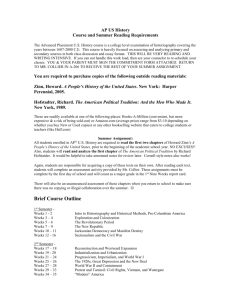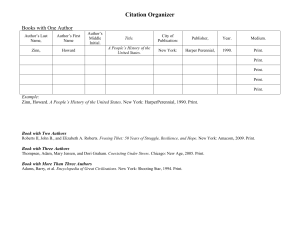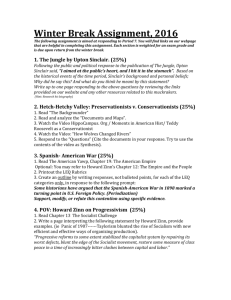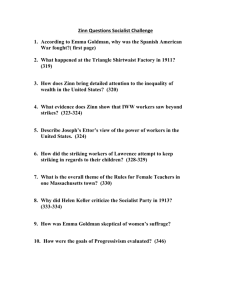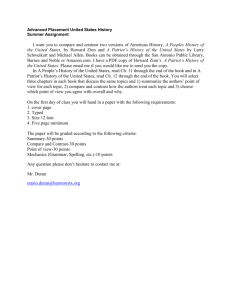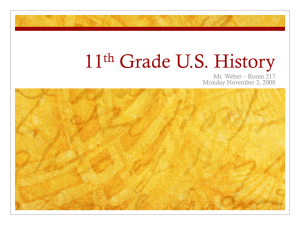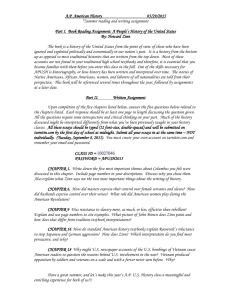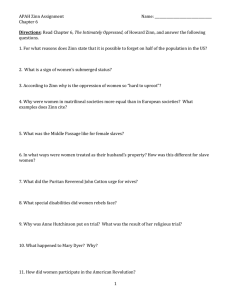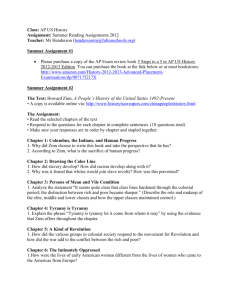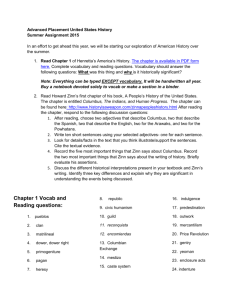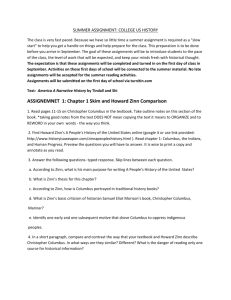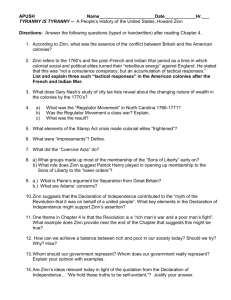Reading/Discussion Questions
advertisement
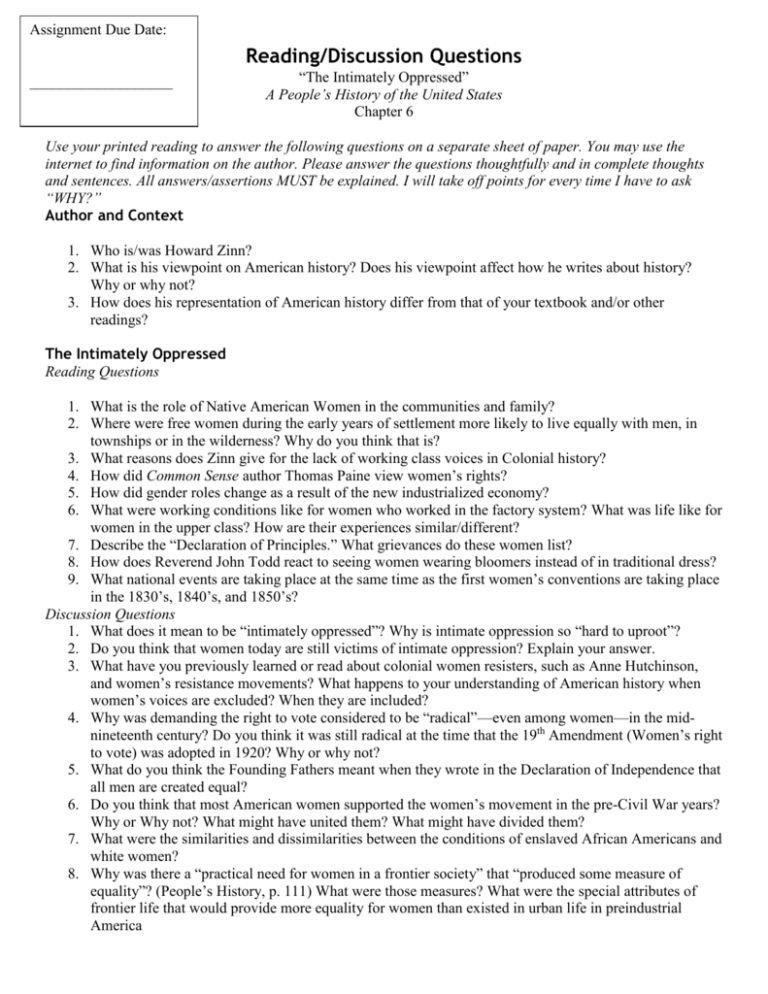
Assignment Due Date: Reading/Discussion Questions ___________________ “The Intimately Oppressed” A People’s History of the United States Chapter 6 Use your printed reading to answer the following questions on a separate sheet of paper. You may use the internet to find information on the author. Please answer the questions thoughtfully and in complete thoughts and sentences. All answers/assertions MUST be explained. I will take off points for every time I have to ask “WHY?” Author and Context 1. Who is/was Howard Zinn? 2. What is his viewpoint on American history? Does his viewpoint affect how he writes about history? Why or why not? 3. How does his representation of American history differ from that of your textbook and/or other readings? The Intimately Oppressed Reading Questions 1. What is the role of Native American Women in the communities and family? 2. Where were free women during the early years of settlement more likely to live equally with men, in townships or in the wilderness? Why do you think that is? 3. What reasons does Zinn give for the lack of working class voices in Colonial history? 4. How did Common Sense author Thomas Paine view women’s rights? 5. How did gender roles change as a result of the new industrialized economy? 6. What were working conditions like for women who worked in the factory system? What was life like for women in the upper class? How are their experiences similar/different? 7. Describe the “Declaration of Principles.” What grievances do these women list? 8. How does Reverend John Todd react to seeing women wearing bloomers instead of in traditional dress? 9. What national events are taking place at the same time as the first women’s conventions are taking place in the 1830’s, 1840’s, and 1850’s? Discussion Questions 1. What does it mean to be “intimately oppressed”? Why is intimate oppression so “hard to uproot”? 2. Do you think that women today are still victims of intimate oppression? Explain your answer. 3. What have you previously learned or read about colonial women resisters, such as Anne Hutchinson, and women’s resistance movements? What happens to your understanding of American history when women’s voices are excluded? When they are included? 4. Why was demanding the right to vote considered to be “radical”—even among women—in the midnineteenth century? Do you think it was still radical at the time that the 19th Amendment (Women’s right to vote) was adopted in 1920? Why or why not? 5. What do you think the Founding Fathers meant when they wrote in the Declaration of Independence that all men are created equal? 6. Do you think that most American women supported the women’s movement in the pre-Civil War years? Why or Why not? What might have united them? What might have divided them? 7. What were the similarities and dissimilarities between the conditions of enslaved African Americans and white women? 8. Why was there a “practical need for women in a frontier society” that “produced some measure of equality”? (People’s History, p. 111) What were those measures? What were the special attributes of frontier life that would provide more equality for women than existed in urban life in preindustrial America 9. What was the “cult of domesticity” (People’s History, p. 104)? Do you agree that it was “a way of pacifying her [women] with a doctrine of ‘separate but equal’”? Why, or why not? 10. Howard Zinn suggests that the growing capitalist economy in the United States required that women play particular roles. What was the relationship between the economy and the “proper” attitudes and behaviors expected of women? 11. What evidence does Howard Zinn provide to support his statement that the conditions of bondage faced by workingwomen and upper-class women“created a common consciousness of their situation and forged bonds of solidarity among them” (People’s History, p. 117)? If they indeed shared such common bonds, what stood in the way of a unified effort to break their bondage?
